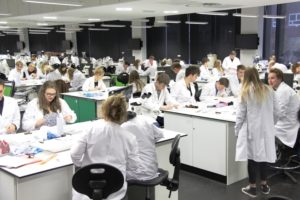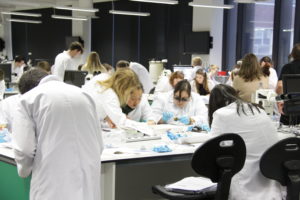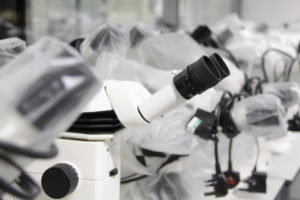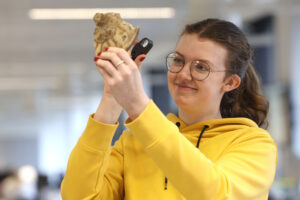Course overview
Understanding the complex interactions between the physical and biological environment and how humans influence them both is essential if we are to find solutions to the increasing global environmental challenges that face us today.
Our degree will give you an in-depth understanding of both natural and human-induced environmental problems. All of our modules centre on real-world issues and application including climate change, pollution, and natural hazards.
The key strength of our programme is the unique breadth of staff expertise in the School of Environmental Sciences. This allows you to choose from an extensive range of modules delivered by experts in their field using state-of-the-art equipment and techniques. Your choices are guided by one of five module pathways themes: digital environments, ecology, oceans, society, sustainability, and the environment, and earth and surface processes.
These pathways ensure that our students graduate with the specialist skills and knowledge needed for their future careers, while also having the benefit of a wide-ranging education in Environmental Science.
From your first week to your final year, field classes are an integral part of your learning, giving you a chance to experience the environments that you are learning about and practice using industry-standard sampling and surveying approaches. In addition to making the most of Liverpool’s coastal location, you will also have the opportunity to undertake fieldwork in locations such as Snowdonia, Pembrokeshire, and the Peak District as well as options in Portugal.
A number of the School’s degree programmes involve laboratory and field work. Fieldwork is carried out in various locations, ranging from inner city to coastal and mountainous environments. We consider applications from prospective disabled students on the same basis as all other students, and reasonable adjustments will be considered to address barriers to access.
Why choose Environmental Science at the University of Liverpool?
- Taught by world-leading professors like Professor Kate Parr (Tropical Ecology) and Professor Alessandro Tagliabue (Ocean Biochemistry), who are experts in their fields
- Unique modules such as Environmental Science Fieldclass and Simulating Environmental Systems, offering hands-on fieldwork and modelling experience, only available for 2+2 programme
- Access to extra credits or certificated extra-curricular activities like internships, placements, and seminars with leading companies, enhancing postgraduate applications
- Networking opportunities through student-led seminar series and alumni talks, connecting students with industry professionals.
WHAT YOU’LL LEARN
- Small tutor groups (typically six-eight students) through all years
- High levels of field and lab-based teaching within the School of Environmental Sciences and in Europe’s most advanced teaching laboratories
- An emphasis on active, problem-based learning (learning by doing)
- Hands-on experience with cutting-edge laboratory technologies
- Supervised independent and group project work, including a final year independent research-based dissertation supervised by a dedicated expert in the field.
Accreditation
Our Environment Sciences BSc (Hons) course is accredited by the Institution of Environmental Sciences.








